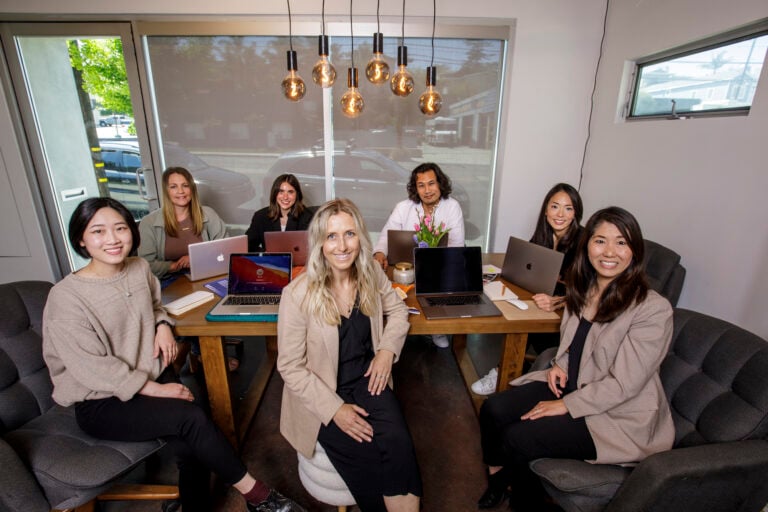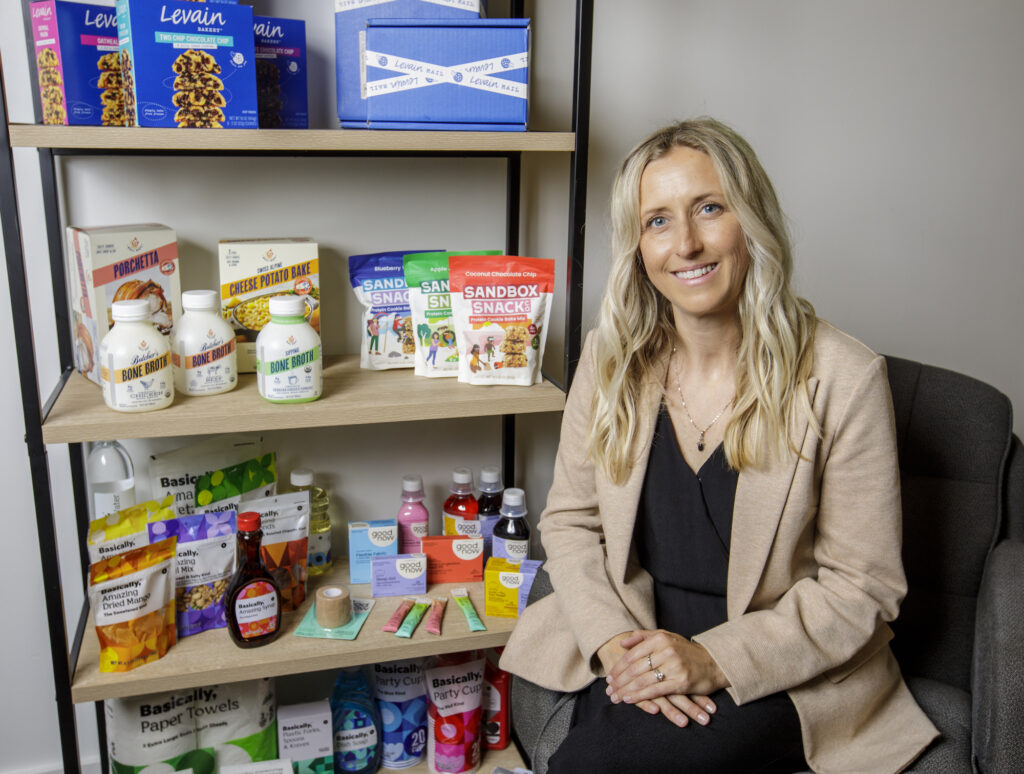
In case you haven’t heard, there’s a recession looming. At least that’s what experts have been predicting for a year or more.
However, Danielle Kidney Beal, founder and director of packaging design firm The Creative Pack, is among the many smaller and midsize business owners who feels she’s ready for any downturn.
Part of her confidence stems from the lessons learned during the lockdown years of the Covid-19 pandemic.
“I feel like we’ve been through a lot in the last couple of years, so that has certainly built some resilience,” she said.
She is certainly not alone. According to a new survey, a supermajority of small business owners in Los Angeles feel that their enterprises are equipped to handle any downturn that may arrive in the coming months.
That confidence may be borne of several factors in addition to feeling battle-hardened from the pandemic. Accompanying factors might include robust savings or access to funding or having operations that are streamlined with help from new technology. Others see their trades as being relatively safe during hard times and, of course, the coming recession — if one arrives at all — has been predicted for so long that business operators have had ample time to prepare.
“Many of those small business owners feel more confident about the local economy and revenue expectations despite interest rates, supply chain issues and other headwinds,” said Angela Antonio, a senior vice president at Bank of America and small business regional executive for the Greater Los Angeles area. “They continue to grow their businesses and feel confident.”
Survey results
Nationwide, 76% of small business owners are confident their companies are equipped to survive a recession, according to the new study by Bank of America. Meanwhile, 48% of small business owners plan to expand their operation within the next year — not a large amount, but still an 11% improvement from the previous year and not the kind of reaction one might expect with a recession presumably coming.
Narrowed down to Los Angeles, the confidence is more apparent — 82% of small business owners say they’re equipped for a recession. And 64% of business owners here plan to expand in the year ahead.
Additionally, 55% report working additional hours themselves to cover labor shortages; 66% said they have upped benefits to help attract and retain employees; 49% plan to hire more employees; and a whopping 90% say they have digitally optimized their operation within the last year, in ways such as adopting cashless payment options or banking online.
Area business owners are also forward-thinking in terms of sustainability, even with the sometimes-expensive upfront costs with that. Bank of America’s study indicates that 84% of L.A.’s small businesses have adopted sustainable practices — such as reducing paper use, altering habits, purchasing sustainable materials and using electric vehicles — in spite of contending with the costs and variable quality of materials. Digital tools play a role here as well, on top of streamlining work.

“I think part of it is the flexibility of our L.A. entrepreneurs that are adjusting their business plans as needed,” Antonio said. “They’re offering increased benefits to retain their workers. They’re digitally optimizing their businesses. They’re pivoting based off of what they’re seeing from their clients and their behaviors and trends. I would say our L.A. business owners are nimble.”
The Creative Pack is among those businesses making a big investment right now. This summer, the nine-person firm — which rented a space in Manhattan Beach before the pandemic and then pivoted to remote work or using a coworking space after — plans to cut the ribbon at a new studio in Lawndale. Kidney Beal said the company tapped into a small business grant from Bank of America that covers up to half or $25,000 of a down payment for certain commercial real estate loans.
Investing in a physical studio space will represent a significant improvement to the operation, Kidney Beal said, both because it fosters stronger collaboration and gives clients a chance to work more closely with them.
“It was a dream of mine to have our own space that we could create without any landlord restrictions. There’s a long-term investment, I believe, in property and the space I managed to find at the end of last year is also in an Opportunity Zone,” she said, referring to the federal economic program to help entrepreneurs invest in distressed areas. “They’re looking to build business in that area and I was lucky to find a dream property — a standalone building with a thousand square feet and gated parking. The long-term investment is obviously having a stake in the ground and being a part of the community and the short-term goal is to bring the team back together after three years of remote working. Being a creative business, I think it’s important to have a space to create and collaborate.”
Future
Whatever the coming months may bring, it won’t be anything like the early months of the Covid-19 pandemic.
“We’ve been remote for three years,” Kidney Beal said. “One of the things about being resilient and having good client relationships and being adaptable as a small team is that during Covid, when clients needed to pivot, we were able to pivot with our clients and we were able to continue serving them through different phases of their business.”
That assurance — and prior experience — likely factors into the relative confidence of businesspeople right now.
“The pandemic really forced businesses to become more efficient, so I think a lot of them are going into a potential recession being pretty nimble,” said Brandon Parsons, a practitioner of economics at the Pepperdine University Graziadio Business School. “In many cases, they’re potentially coming into the recession in a better place. They’ve had to deal with a lot over the last three years, so they should be able to weather it.”
Recession preparation
In preparing for a recession, Parsons said it’s important for business owners to align their expectation with demand. Although consumer purchasing power remains relatively high, inflation and concerns of a downturn are starting to affect that, he said, so a smart enterprise will adjust and offer similar products at a more economical level than their premium counterparts. To give an example, Parsons posited that consumers may opt for a generic dish soap as opposed to flashy and performance marketed brands.
For enterprises that have longer term relationships with their clients, it also helps to be proactive in contacting those clients and seeing what they can do to help out their wallets while still providing services.
“Keeping your current customers happy is really important,” he said. “Just going the extra mile for your existing customers can go a long way in retaining your current revenue stream during a recession.”
That’s a philosophy that Kidney Beal said had driven the success of The Creative Pack, particularly because her firm ultimately becomes a key cog in branding for her clients.
She said in recent years, the amount of private label work — when grocery stores and major retailers adopt store brands — has increased and remained a reliable source of work.
“We have a steady flow of brand management work, changing labels, things like that,” she said. “We help them with regulatory changes on food and beverage packing. I feel like we’ve been through a lot. The bits you can’t control, you have to let go of. As long as we can continue to do that, we have a steady flow of repeat business. I’m being pretty optimistic, but I’m pretty careful, so we don’t do things beyond our means.”
And while they’re being proactive, businesses also stand to benefit from making sure they stand out to potential new customers.
“There’s a tendency for firms to dial down marketing during recessionary pressures,” Parsons said. “That can be a mistake, especially given the need for firms to really differentiate their products relative to competitors when customers are more price sensitive.”
